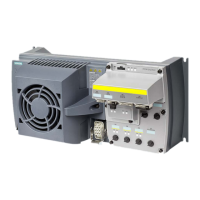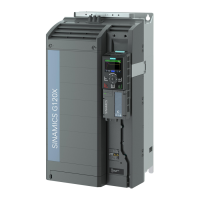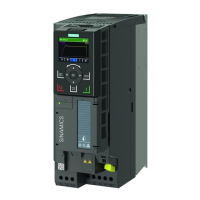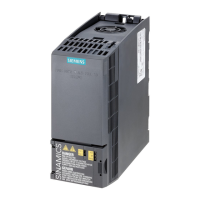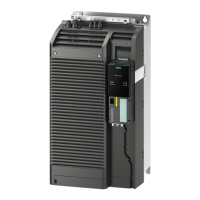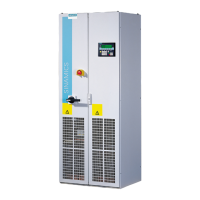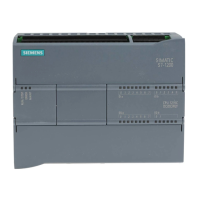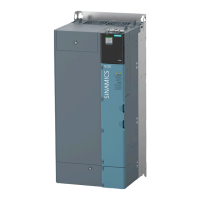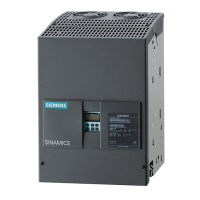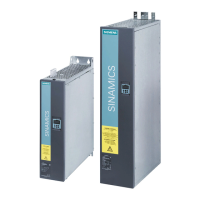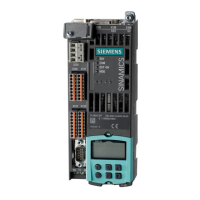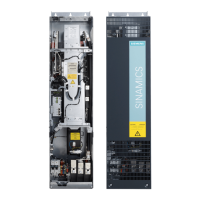Advanced commissioning
7.5 Motor control
Vector control with speed controller
Overview
Vector control consists of current control and a higher-level speed control.
1)
Figure 7-21 Simplified function diagram for vector control with speed controller
You will find complete function diagrams in the List Manual: 6020 et seq.
The inverter uses the motor model to calculate the following control signals from the
measured phase currents and the output voltage:
● Current component I
d
● Current component I
q
The setpoint of the current component I
d
(flux setpoint) results from the motor data. At
speeds above rated speed, the inverter reduces the flux setpoint via the field-weakening
characteristic.
If the speed setpoint is increased, the speed controller responds with a higher setpoint of the
current component I
q
(torque setpoint). The closed-loop control responds to the higher
torque setpoint by adding a larger slip frequency to the output frequency. The higher output
frequency also results in higher slip in the motor, which is proportional to the accelerating
torque. The I
q
and I
d
controllers keep the motor flux constant via the output voltage and set
the suitable current component I
q
.
Converter with control units CU240D-2
Operating Instructions, 04/2015, FW V4.7.3, A5E34262100B AB
151

